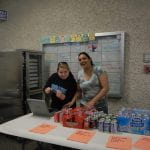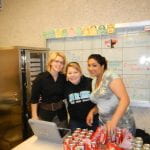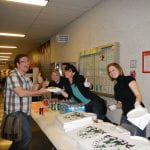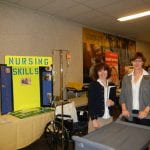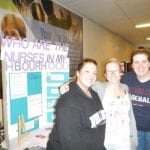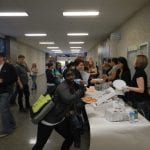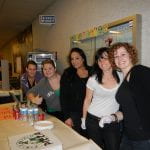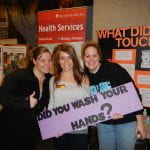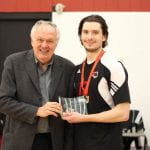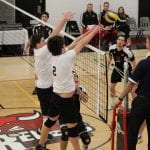RRC Nursing Instructors Present at WNRCASN Conference
The Western North-Western Region Canadian Association of Schools of Nursing (WNRCASN) recently held their annual nurse educators’ conference in Edmonton on February 21-23, 2013. This conference facilitated the sharing of ideas, strategies, philosophies, and research findings to develop the scholarship of nursing. Several RRC nursing faculty presented at the conference and a brief description of their projects is included.
- Building Self-Efficacy In Scholarly Writing In First Year Nursing Students (Author: Kim Mitchell)
The complex task of researching and writing a scholarly paper is anxiety provoking for students. This presentation detailed the process of developing a course in scholarly writing within the context of delivering course material to an audience of 150-200 students. Preliminary research findings regarding the course’s influence on anxiety and self-efficacy were also presented.
- Arts-based Learning: Creating Art to Reflect on Practice, Reflecting on Art to Inform Practice (Authors: Kendra Rieger, Luanne Hill, Joanne Loughery)
Arts-based learning is an innovative teaching strategy in which learning is designed to occur through the use of one or more art form(s) integrated with subject matter from another academic discipline. This presentation discussed two arts based learning exemplars and the potential for arts-based learning in the current nursing curriculum.
- Arts-based Learning: Analysis of the Concept for Nursing Education (Presented by: Kendra Rieger; Authors: Kendra Rieger and Dr. Wanda Chernomas — University of Manitoba)
There is a call for a significant shift in curricula away from content focused designs and towards developing environments in which learning processes are emphasized and active student engagement is fostered. Arts-based learning (ABL) is an innovative strategy which engages learners and simultaneously connects thoughts with feelings as part of the learning process. This presentation focuses on a concept analysis of ABL within the nursing education environment.
- Using Client Actors in Nursing Education: The Highest Kind of Fidelity (Authors: Karlene Cifuentes, Brenda Enns, Richel Roque, Jennifer Otto)
The new Baccalaureate Nursing program at Red River College identified a need to integrate a wide variety of innovative teaching approaches. Using client actors in nursing clinical simulation was one such teaching approach. This presentation discussed the process of integrating client actors into nursing education, the difference between client actor scenarios and standard case studies, and future directions with the approach.
- Professional Identity Development in Nursing Education: A Study in Progress (Presented by Brenda Enns; Authors: Brenda Enns, Virginia Vandall-Walker — Athabaska University)
Positive Proffessional Nursing Identity (PNI) development has been associated with greater satisfaction with one’s work and improved patient outcomes. This presentation focused on preliminary findings from a qualitative grounded theory investigation into positive PNI which has the potential to inform educational and clinical practice changes that could promote new graduates’ abilities to consolidate and enact positive PNIs in practice.






